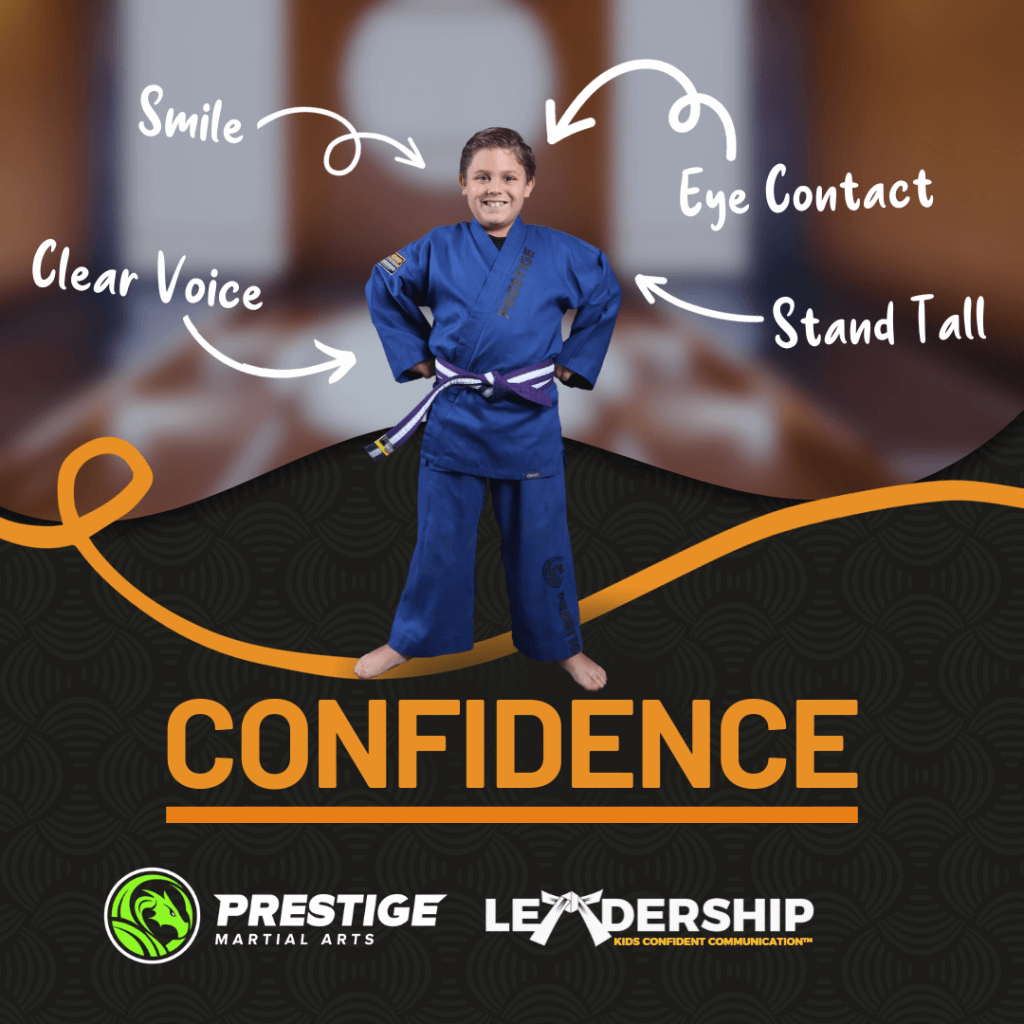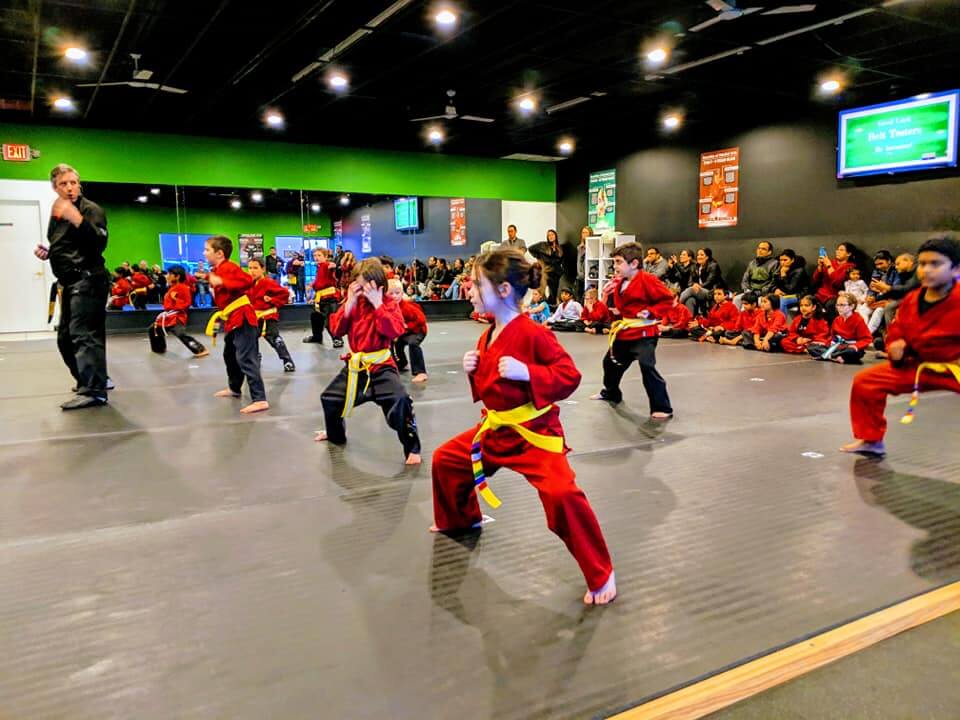Martial arts is a prime environment to help children learn compassion: patience and kindness towards oneself and others. Children in martial arts learn empathy through the goal-oriented setting of classes.
Are you trying to find an activity for your child that will build their empathy and compassion? Perhaps you are looking for an alternative to competitive sports.
Keep reading to learn how martial arts classes help children develop empathy and compassion.
This Prestige Martial Arts article will explain how the environment of martial arts participation helps children become more compassionate and empathetic. We’ll also explain why stress tolerance is essential for lifelong empathy.
Compassion and empathy are only a couple of the leadership skills that martial arts teaches. When you finish this blog post, keep reading to discover more about the leadership development that learning martial arts provides children and teens.
How Martial Arts Teach Empathy and Compassion
Martial arts instruction teaches empathy and compassion to children and teens through shared experiences and developing empathy for winning and losing situations. The goal-oriented environment of martial arts is a good setting for learning empathy and compassion.
Martial arts encourage students always to see things through an opponent’s point of view. This practice leads to empathy and compassion.
Here are some more ways that martial arts classes cultivate compassion and empathy in children and teens:
Winning and Losing: Feeling Empathy
Children and teens in martial arts will experience both wins and losses. They will be able to relate to their peers in both winning and losing situations. These class members will learn to be happy for the success of others and empathize with the experience of losing.
Shared Experiences and Goals Lead to Empathy
Martial arts teach children and teens in a goal-oriented environment that fosters empathy. In order to progress, students of martial arts must learn skills and keep time commitments as part of a shared experience. Progression does not depend on winning competitions or being better than others.
Competitive sports can be great ways to teach children a sense of self, and success in competitive sports can help children gain confidence. However, there is a lot of focus in competitive sports to be better than someone else in tryouts or competitions.
Karate is an example of a martial art with a belt system to help students mark their progress. Children and teens can progress to the next belt whether they are the most skilled in their class or if they demonstrate the minimum amount of skill for progression.
The decreased focus on competition in martial arts makes learning empathy and compassion more accessible to kids!
How Kids Learn Self-Compassion through Martial Arts

Kids enrolled in martial arts classes learn self-compassion by learning to recognize their successes and acknowledge their weaknesses. Children and teens will learn to give themselves credit for what they have learned. They also learn to accept that excellence is developed over time.
Self-compassion is essential to developing empathy and compassion with others. How we relate to ourselves is highly impactful to our ability to extend patience and understanding toward someone else.
How Commitment to Martial Arts Teaches Self-Compassion
Self-compassion is required to progress in a talent like martial arts, which involves a lot of dedication. It takes years to progress from the beginner belt to the black belt. Students must have patience with themselves and the process of learning new things.
In other words, children and teens in martial arts must learn to practice self-compassion.
Importance of Stress Tolerance in Compassion
Feeling uncomfortable or under stress is vital to being able to extend empathy and compassion to others. Empathy and compassion require holding space for the feelings of others in addition to our own. Holding space involves stress tolerance and emotional regulation, which martial arts teaches kids.
Without stress tolerance and individual emotional regulation, recognizing and being able to respond to the suffering of others with kindness is too overwhelming. As stress tolerance develops in martial arts classes, children will have an increased capacity for compassion.
Adaptability is another skill closely connected with stress tolerance. Martial arts also help children and teens become more adaptable.
Finding Martial Arts Classes in Michigan
Compassion and empathy are essential skills for leaders of the future, and martial arts classes are a great way to teach these skills to children and teens. Prestige Martial Arts offers instruction for children and teens, focusing on physical and emotional skill development in Michigan.
Contact us today online or by calling (248)-687-8641. We offer classes for children as young as four years old through the teenage years. We proudly serve Troy and the surrounding communities.
Frequently Asked Questions
How does martial arts teach mindfulness?
Martial arts teach mindfulness by teaching students to be aware of themselves: their body, their emotions, and their surroundings. This awareness, discipline, and self-control lead to emotional regulation and other aspects of mindfulness.
What is compassion?
Compassion is extending kindness towards oneself and others. It involves recognizing and responding to suffering with understanding and patience. Compassion requires strength and emotional resilience.

